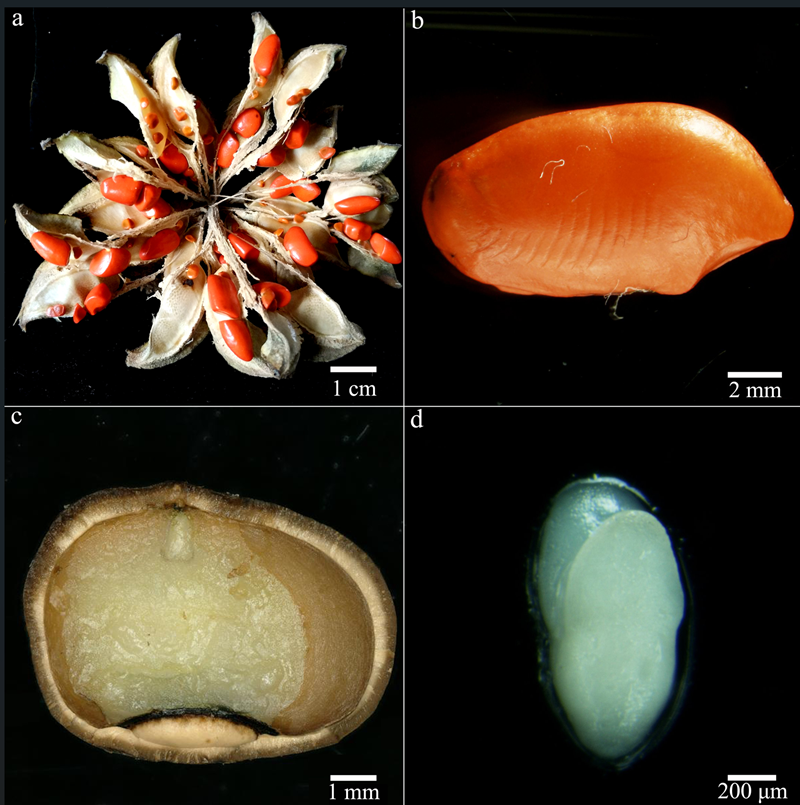
Research
According to the International Union for Conservation of Nature
Magnolia sinica is a critically Endangered species narrowly distributed along the China-Vietnam border. Seed dormancy and germination were investigated at the Germplasm Bank of Wild Species (GBOWS) of the Kunming Institute of Botany (KIB), Chinese Academy of Sciences.
According to the researchers, freshly matured seeds germinated to ca. 86.5% at 25/15 ℃ but poorly at 30 ℃; gibberellic acid (GA3) and moist chilling promoted germination significantly at 20 ℃. Embryos grow at temperatures (alternating or constant) between 20 °C and 25 ℃. M. sinica seeds possibly have non-deep simple morphophysiological dormancy.
Seeds of M. sinica maintain a high germination rate when the moisture content reduced to 9.27% and 4.85% as well as after six-month storage at -20 ℃ and in liquid nitrogen, including recovery in vitro as excised embryos.
The data, along with other findings, imply that seeds of some Magnolia species are orthodox and can be banked either at -20 ℃ or in liquid nitrogen.
Collecting mature seeds of Magnolias is critical for successful seed preservation. GBOWS have started screening the seed storage behavior of Magnolias for better banking practice of those endangered species in China.

Fruit, seed and embryo morphology of Magnolia sinica. a. dehiscent fruit; b. seed; c. profile of the seed; d. excised embryo. (Photo credit: GBOWS)
